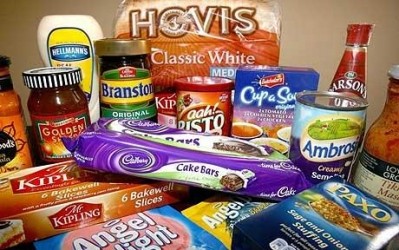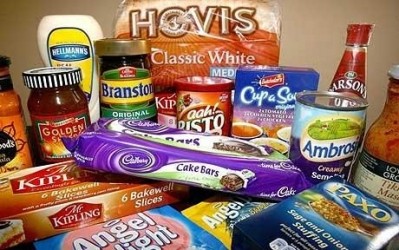Nervous City expects more trouble for Premier Foods

Investment firm Exane BNP Paribas (EBP) has described Premier’s third-quarter performance as “shocking” and the collapse in profit forecasts as “eye watering”.
Shares have tumbled from about 30p six months ago to below 4p this month. Jeff Stent of EBP has now advised investors to aim for a target price of 1p.
Although many analysts now regard a sell-off of Premier businesses as inevitable, with Brookes Avana cited as the prime candidate, experts warn that these will not necessarily deliver value for shareholders or reverse the fortunes of the troubled firm.
One analyst told FoodManufacture.co.uk: “Premier has a covenant requirement with its lending banks to achieve EBITDA [earnings before interest, taxes, depreciation, and amortisation] 2.7 times greater than its interest charges at the end of the year, which it’s very unlikely to meet.
Breach covenants
“The fact that they could breach covenants is very worrying and is one of the reasons the share price has fallen so greatly. There are really only two ways from here to increase shareholder value. “They have clean net debt, which is still over £1bn, and a pension deficit of £535M. If you combine those two liabilities, by themselves they’re 6.5 times the forecast EBITDA. That implies that the company’s entire enterprise value is accounted for by debt, leaving nothing for the shareholders.”
Stent at EBP said it was unlikely that Premier could trade its way out of trouble. “We struggle to see how the new ceo Michael Clarke can make additional investment behind the brands,” he said.Even if money was made available, Premier’s inherent volume rate is “at best modest”.
The most likely scenario was that banks would agree to reset covenants in December, he said. “All involved hope for the best,” and equity will continue to “limp along for some time to come”.
Even if sale prices were higher than expected, “any such disposals are unlikely to give Premier an equity escape route", he said.
The analyst, who asked FoodManufacture.co.uk not to disclose his name, said: “Brookes Avana is the obvious candidate and would be relatively straightforward as there would be relatively few dis-synergies from selling the business. It achieves £200M sales but we think it will lose £20M, so finding a buyer won’t necessarily be easy.”
Profit warning
Premier’s recent profit warning has highlighted the scale of the problems facing Mike Clarke, whose first major challenge will be negotiating an agreement with the banks at the end of the year.
His options also include a rights issue or debt-for-equity swap, but Stent warned these may be ineffective in solving balance sheet problems or restoring shareholder value.
Clarke said he would be focusing on eight key brands – Ambrosia, Bisto, Batchelor’s, Hovis, Loyd Grossman, Mr Kipling, Oxo and Sharwood’s.
But the unnamed analyst said this strategy had its risks.“I think the two main reasons for the warning were they hadn’t really regained the momentum following the delisting with Tesco in the first half. And secondly, the money spent on promotions just hasn’t delivered the uplift in sales because consumers have increasingly been opting for own-labels instead of brands,” he said.
“The problem is that the strength of those eight key brands with UK consumers has been overestimated by Premier. The fall-out with Tesco earlier this year really highlighted that – the fact is they delisted 25% of Premier’s brands, including three of those so-called power brands.”















